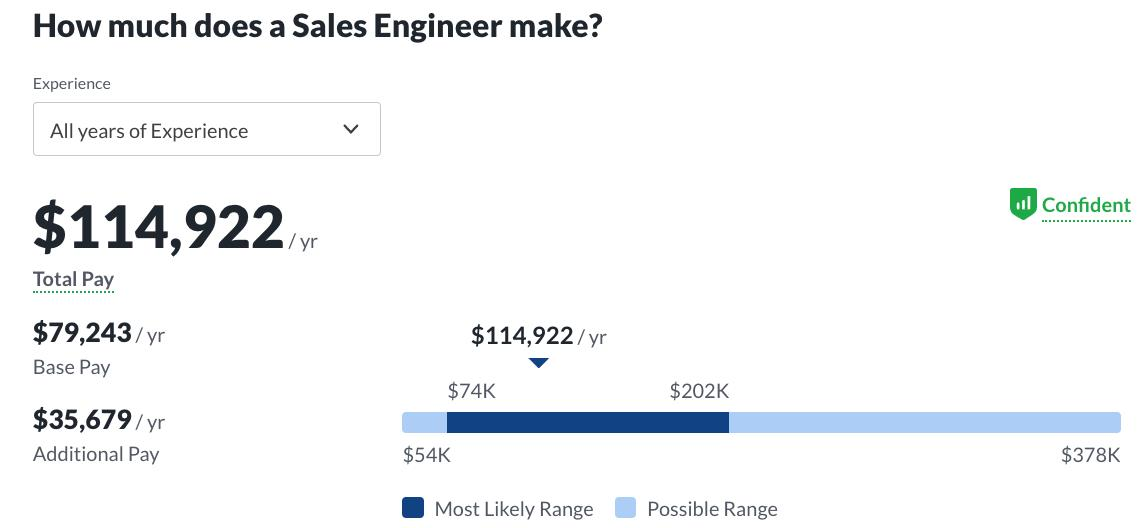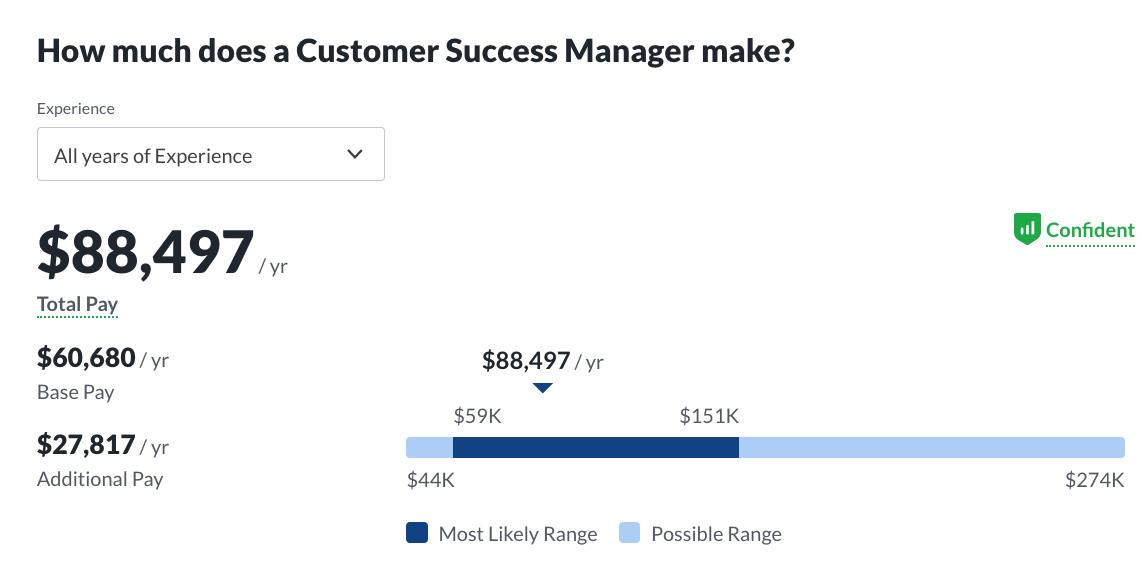Sales Engineer and Customer Success Manager are both popular software sales jobs that some people might get mixed up because of their similarities. In this article, we’ll discuss how the Sales Engineer vs Customer Success Manager differs and how to decide which is the right career move for your specific skills and preferences.

Difference Between Sales Engineer vs Customer Success Manager
While Sales Engineer and Customer Success Manager are both sales-related positions common to software companies, they do differ in many ways.
The main difference between a Sales Engineer vs Customer Success Manager is that a Sales Engineer interacts with prospects during the sales process to help close the sale, and a Customer Success Manager works post-sale with customers to nurture and grow the account.
Difference in Sales Engineer and Customer Success Job Responsibilities
The Sales Engineer, also called Pre-Sales, acts as an in-house product expert. They support the Account Executive in the sales process by giving prospects technical demos, answering complex questions about the product, and doing technical discovery to match a solution from their software portfolio to the prospect’s specific needs.
They also ensure that the Account Executive doesn’t overpromise the client, which can occur if the AE doesn’t have a complete understanding of the prospect’s technical limitations or the product’s capabilities, which can be numerous, especially for enterprise software solutions.
This in turn makes the CSM’s job easier because the clients’ expectations are met. Additionally, the Sales Engineer might assist the client in the deployment of the software, helping them manage integrations and do other technical tasks.
After the sale is closed, the Customer Success Manager takes over and acts as the customer’s advocate and software guide, intent on keeping the client happy primarily by helping them get the most out of the product.
Aside from simply maintaining the relationship and preventing churn, the CSM is also in charge of expanding the partnership through upsells and cross-sells. They are the best equipped to do this because they’ve gotten to know the client over numerous calls, check-ins, and strategy sessions and have spotted unmet needs.
Difference in Sales Engineer and Customer Success Salary
According to Glassdoor’s data, a Sales Engineer makes $114,922 per year on average, while a software Customer Success Manager earns $88,497 per year.
Sales Engineers who fall within the 25th-75th percentile in earnings earn anywhere between $74,000 and $202,000.

https://www.glassdoor.com/Salaries/sales-engineer-salary-SRCH_KO0,14.htm
The compensation structure for a Sales Engineer is typically a 75:25 split between base salary and commission. Sometimes you might see a 50:50 split, but it’s pretty uncommon. Depending on the company, they might also receive bonuses or profit sharing.
On the other hand, Customer Success Managers who fall within the 25th-75th percentiles in earnings bring in between $59,000 and $151,000 per year.

https://www.glassdoor.com/Salaries/us-customer-success-manager-salary-SRCH_IL.0,2_IN1_KO3,27.htm
According to Customer Success Box’s survey, most CSM compensation plans (68%) include some form of bonus structure in addition to their base salary. Below are some of the commonly cited factors that influence their bonus structure payout:

In sum, although Sales Engineers make a bit more, likely because of the technical acumen requirements of the job, both software sales positions can be extremely lucrative, especially in the software industry, where base salaries and commissions tend to be higher than the national averages.
Should I be a Customer Success Manager or a Sales Engineer?
Many people who want to go into software sales have trouble deciding which role is best for their specific capabilities, background, and preferences.
Below are some questions to ask yourself to figure out whether you’d be happier and more successful as a CSM or as a Sales Engineer.
Would I Enjoy Solving Complicated Software Problems?
If troubleshooting sometimes challenging technical problems sounds like a thrill, then being a Sales Engineer might be a satisfying job for you. For example, you might have to diagnose why a customer’s current tech stack is failing to provide them with the analytical capabilities they need.
Or you might have to answer a difficult question about how your software works, and explain it in a clear, jargon-free manner.
Do I Have a Technical Background?
If you studied a science, math, or engineering field in college, or worked in a technical position like coding, employers will look favorably upon your application. Even better if you’ve held a position where you used this type of software on a daily basis at a high level. For example, a former CRM administrator would make a great Sales Engineer for a CRM company.
Am I Skilled at Building Relationships?
While both positions require relationship building, the CSM role is more focused on this aspect. You’ll have frequent calls, check-ins, and meetups with clients to expand the relationship. You might even grab coffee with top clients or host them at a conference, introducing them to other peers and leading the conversations.
Do I Want Long-Term or Short-Term Relationships with Buyers?
Sales Engineers work with prospects intermittently throughout a sales cycle (typically 1-6 months), but then don’t really interact with them once they become customers. CSMs however manage the clients for a long time, often a couple of years, which some people find more fulfilling.
What Are My Career Aspirations?
Think about how both of these positions will help you get future positions that you want. Will you learn the right skills that will boost your resume when it’s time to apply for that future job? What career capital — network, skills, knowledge — will it give you?
For instance, someone who wants to become a VP of Sales one day might be better off taking the CSM role because they build strong relationships with very important customers.
In sum, both positions can be incredibly fulfilling as long as they meet your particular needs. In short, technically-minded people with some sales skills will thrive in and enjoy the Sales Engineer role, whereas relationship-oriented, outgoing, and helpful people who love growing partnerships are perfect for the CSM position.

Bottom Line
A Customer Success Manager handles the customer post-sale and helps them succeed with the software in order to keep them happy and grow the relationship.
Meanwhile, a Sales Engineer is involved in the sales process. They handle the technical aspects of the sales, like assessing a prospect’s current tech stack to see if integration is possible or giving a technical demo.
Both positions are lucrative and common among software companies. If you’re looking to move into one of these roles quickly, check out our Sales Trax Job board, a place dedicated to helping aspiring software salespeople find the perfect job for them.
